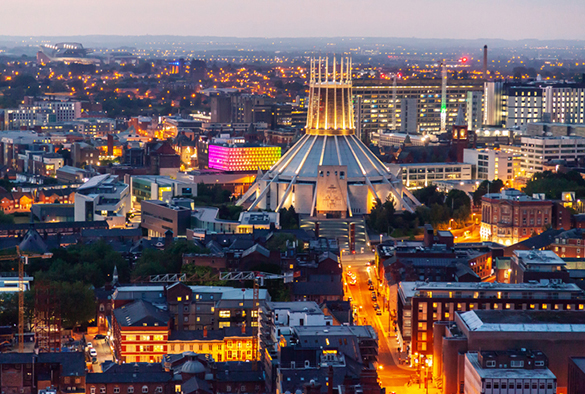
The University of Liverpool, Liverpool John Moores University, Liverpool Hope University, Liverpool School of Tropical Medicine and Liverpool Institute for Performing Arts have been meeting regularly, together with bodies such as Liverpool City Council, Citysafe, Liverpool Student Homes, experts in health and safety and public health officials, to ensure that we protect our students, staff and the local community throughout the pandemic.
The increase in cases across the region is clearly a cause for concern and we welcome the additional measures announced today (Friday, 18 September 2020) for the Merseyside region. These measures include: people not socialising with others from outside of their own households or support bubble in their homes and gardens; and public transport only being used for essential purposes, such as travelling to work or campus.
These additional measures do not currently require any changes to our enhanced provision and so, our welcome and teaching activities will continue as planned. Students will still be able to join us in Liverpool and form new ‘households’ and they will still be able to attend face-to-face teaching sessions and explore the City safely.
Safety remains at the heart of all our decision making and each of our institutions has carefully planned a significant range of measures to ensure our campuses are COVID-secure and compliant with Health and Safety requirements and that students can arrive and study with us safely. This means that, amongst other measures, we have:
• made changes to our teaching delivery, moving some classes online and ensuring socially distanced face-to-face delivery;
• ensured each of our buildings is COVID-secure;
• implemented one-way walking routes, social distancing markers, socially distanced study space, new cleaning regimes and a range of other measures on our campuses;
• introduced appropriate measures in our owned halls of residence and worked closely with accommodation providers across the City to share best practice;
• worked alongside the City’s Student Unions to plan a programme of online events to welcome students to campus. The SU’s have devised ways for students to make friends and expand their network safely, get settled in to university life and get support if and when they need it;
• introduced new arrival processes for students;
• supported our international students to quarantine safely on their arrival to the UK;
• communicated regularly with all our staff and students on the measures they need to take to keep themselves and others safe; and
• developed a joint Student Community Pledge which asks students to commit to demonstrate their shared commitment to respectful and responsible citizenship.
We are proud that our institutions have played – and continue to play – an important role in tackling the pandemic. Our world-leading researchers are seeking solutions to the pandemic and its impacts, we have supplied NHS staff with PPE, accommodation and car parking, our staff and students have helped on the NHS frontline and many of our students have supported local community projects to support the vulnerable and isolated during the pandemic. We remain committed to doing all that we can to ensure we play our part in tackling COVID-19 across the City Region.
Professor Dame Janet Beer, Vice-Chancellor, University of Liverpool
Professor Ian Campbell, Vice-Chancellor, Liverpool John Moores University
Professor Gerald Pillay, Vice Chancellor & Rector, Liverpool Hope University
Professor David Lalloo, Director Liverpool School of Tropical Medicine
Mark Featherstone-Witty, Founder/CEO of Liverpool Institute for Performing Arts
Adnan Hussain, President, Liverpool Guild of Students
Lila Tamea, President, Liverpool John Moores University Students’ Union
Harry Pearce, President, Liverpool Hope Students’ Union